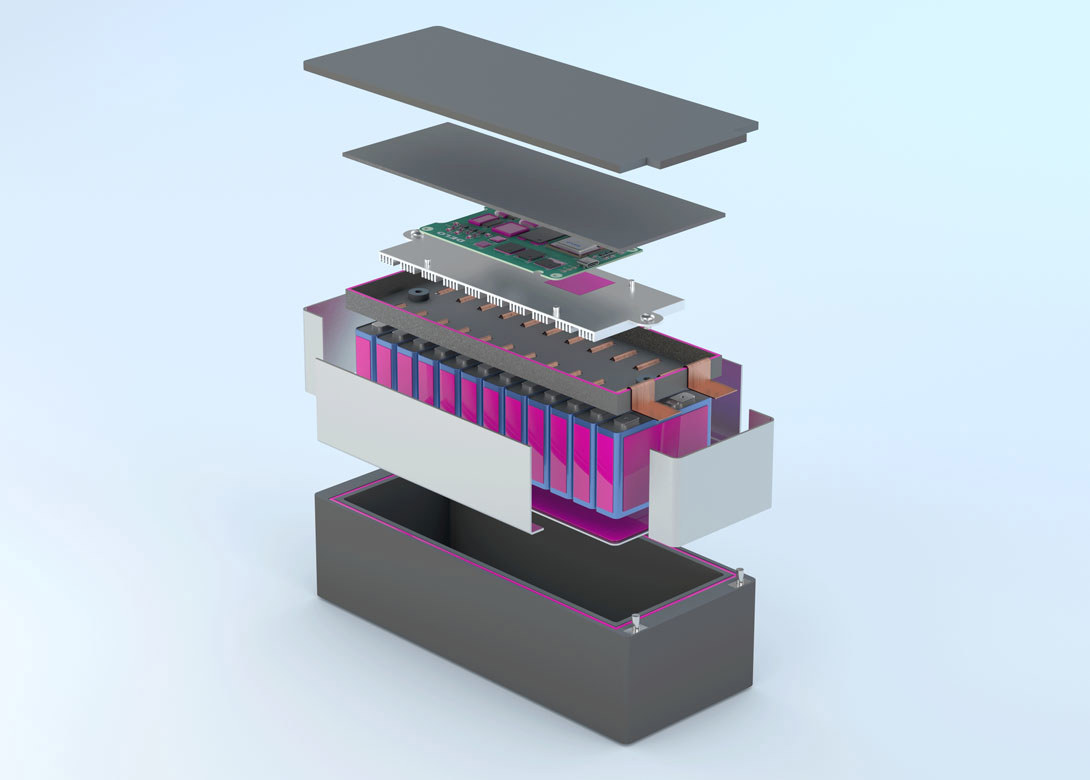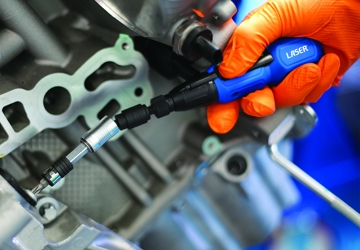

DELO has introduced a structural adhesive for batteries used in hybrid vehicles. Designed for high volume series production, DELO-DUOPOX TC8686 is thermally conductive and flame retardant, as well as being ideal for use in the ramp-up of an automotive supplier.
The new adhesive is particularly suitable for low voltage batteries as found in mild hybrids. This allows, for example, battery cells to be bonded into the battery housing while also efficiently dissipating the heat generated during operation.
DELO-DUOPOX TC8686 combines structural bonding and connection of the thermal management system in one step instead of mechanically connecting the battery cells and then using so-called gap fillers for heat dissipation. This saves one process step and simplifies production. The product is not only suitable for mild hybrids, but also for conventional hybrids and for other batteries in the low voltage range, such as those used in e-bikes and e-scooters.
DELO-DUOPOX TC8686 is designed for temperatures ranging from -40°C to +85°C and offers good strength on battery cells and typical housing materials. For example, the tensile shear strength on aluminium is 18N/mm². The adhesive also meets the strength requirements of the automotive industry at typical operating temperatures between 10°C and 40°C up to the maximum service temperature of 80°C, a temperature at which the battery electrolyte can already be irreversibly damaged. The adhesive's properties in terms of elongation at tear also help to meet these requirements. A certain flexibility compensates for the different thermal expansion behaviours of cell and housing material during operation.
The product's thermal conductivity, which is a very important factor for battery cell applications, is 1.1W/m*K. Another major benefit is that it meets the requirements for flame retardancy according to UL 94 V-0.
The adhesive has also been optimised for manufacturing processes. It offers a simple mixing ratio of 2:1. It has a processing time of approximately 30 minutes after mixing. This is long enough for prototypes and small series and fast enough for fully automated systems. After four hours, the adhesive reaches its initial strength; 90% of its final strength can be achieved after 24 hours. Even with low heat input, this amount of time can be reduced significantly. Depending on the battery electrolyte used, temperatures of 60°C are conceivable.
Beige in colour, the product is easily detectable by cameras, ensuring accurate application control. In addition, the filler for thermal conductivity is only slightly abrasive, contributing to the dispensing systems' long lifetimes. The product being classified in transport category 1 and suitable for transport and storage at room temperature, complicated logistics processes are avoided.

Having spent a decade in the fastener industry experiencing every facet – from steel mills, fastener manufacturers, wholesalers, distributors, as well as machinery builders and plating + coating companies, Claire has developed an in-depth knowledge of all things fasteners.
Alongside visiting numerous companies, exhibitions and conferences around the world, Claire has also interviewed high profile figures – focusing on key topics impacting the sector and making sure readers stay up to date with the latest developments within the industry.





